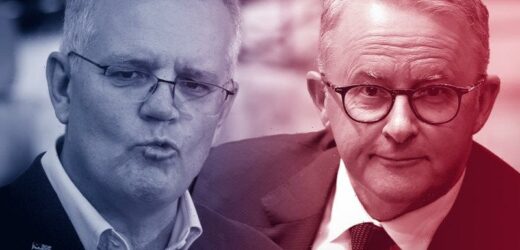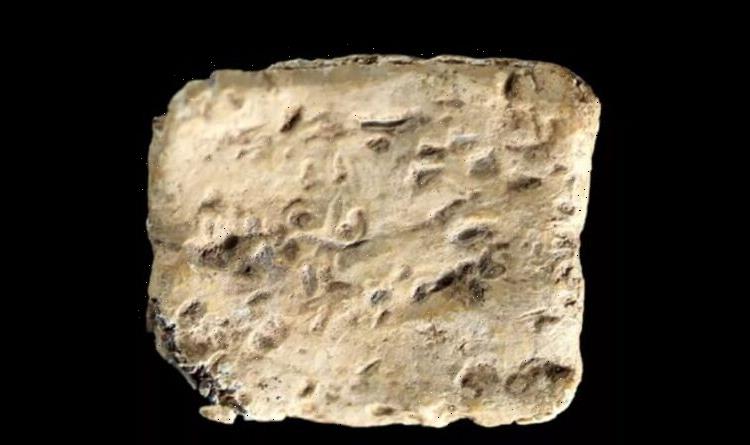Voters have strongly backed the $8.6 billion help for households in last week’s federal budget while drifting away from Prime Minister Scott Morrison and lifting their support for Labor to give the opposition a powerful lead ahead of the election.
Primary vote support for the Coalition has increased slightly from 33 to 34 per cent in the wake of the budget but popular support for Labor has jumped from 35 to 38 per cent despite billions of dollars in government spending.
Anthony Albanese’s Labor party is ahead of the Coalition on primary vote after the federal budget was handed down.
Days away from the start of the official election campaign, Labor leader Anthony Albanese has overtaken Mr Morrison as preferred prime minister with a narrow lead of 37 to 36 per cent.
The findings are part of an exclusive survey that shows 50 per cent of voters believe the federal budget was good for the country as a whole but only 40 per cent see it as good for themselves and their households.
The Resolve Political Monitor, conducted for The Sydney Morning Herald and The Age by research company Resolve Strategic, highlights the growing challenge for Mr Morrison to win a seat-by-seat battle in marginal electorates when national polls are against him.
Resolve director Jim Reed said Labor was going into the election campaign in “pole position” with primary vote results that produced a clear lead for the party in two-party terms, but he cautioned that this was not emphatic support.
“Labor’s vote is best described as wide but shallow,” Mr Reed said.
“They are ahead but there is a weakness to their vote when our polling finds it is largely predicated on a protest against the government and the Prime Minister’s performance rather than an endorsement of the Opposition Leader or any major policy shift.”
Mr Reed said the relatively weak support for Labor could evaporate if Mr Morrison was able to woo uncommitted voters or convince the electorate that Mr Albanese was a risk, but he added that Labor had shown it was aware of the danger and was unlikely to present a large target.
“We already see Labor’s long-term strategy of chipping away at Morrison’s credentials paying dividends, with a decently rated budget and a range of national security issues paying little dividend for the Coalition,” he said.
“Instead, Labor are actually converting the parked protest vote from minor parties and independents in our latest poll.”
Asked about the key budget measures, 72 per cent backed the additional $420 tax offset to be claimed in their next tax returns, 70 per cent backed the one-off $250 payments to six million people to be delivered within weeks and 76 per cent agreed with the decision to halve petrol excise from 44¢ to 22¢ for six months.
Support was lower but still strong for other measures, with 64 per cent in favour of more flexible rules for 20 weeks of parental leave and 51 per cent for Indigenous land management rangers. There was only 47 per cent support for the $665 million program to take another 16,500 refugees from Afghanistan.
The survey of 1618 eligible voters was conducted online from Wednesday to Sunday and had a margin of error of 2.5 percentage points, with a base of respondents chosen to represent the voting population.
Because the Resolve Political Monitor asks voters to nominate their primary votes in the same way they would write “1” on the ballot papers for the lower house at an election, with choices offered in random order, there is no undecided category in the results, a key difference with some other surveys.
Support for the Greens rose from 10 to 11 per cent since the last survey while voters drifted away from Pauline Hanson’s One Nation, which fell from 3 to 2 per cent, and Clive Palmer’s United Australia Party, which fell from 4 to 3 per cent.
While independent candidates are mounting strong campaigns, including in city seats held by Liberals, support for independents nationwide fell from 10 to 9 per cent, while support for “other” candidates fell from 5 to 3 per cent.
The small increase in the Coalition vote reflected a rebound for the Nationals, whose primary vote increased from 3 to 4 per cent, returning to the level seen last year. The Liberal primary vote was unchanged at 30 per cent, significantly below the level of 35 per cent recorded in the Resolve Political Monitor last May in the wake of the previous federal budget.
The stronger support for Labor came at the same time voters tended to confirm their support for one side or the other, with the percentage of voters describing themselves as “uncommitted” falling to 21 per cent compared to 22 per cent in February and 27 per cent in January.
Mr Morrison fell behind Mr Albanese as preferred prime minister for the first time since the Resolve Political Monitor began last April.
Mr Albanese leads by 37 to 36 per cent against Mr Morrison on this measure, a gap that is within the margin of error but represents a turnaround since February, when Mr Morrison led by 39 to 30 per cent.
Asked about Mr Morrison’s performance, 39 per cent said he was doing a good job and 53 per cent said he was doing a poor job, resulting in a net performance rating of minus 14 points. This was a slight improvement on a net rating of minus 17 points in February.
Asked about Mr Albanese, 38 per cent said he was doing a good job and 42 per cent said he was doing a poor job, resulting in a net rating of minus four points. This was slightly better than his rating of minus five points in February.
While only 8 per cent of voters were undecided about Mr Morrison, 20 per cent were unsure about Mr Albanese.
Jacqueline Maley cuts through the noise of the federal election campaign with news, views and expert analysis. Sign up to our Australia Votes 2022 newsletter here.
Most Viewed in Politics
From our partners
Source: Read Full Article



